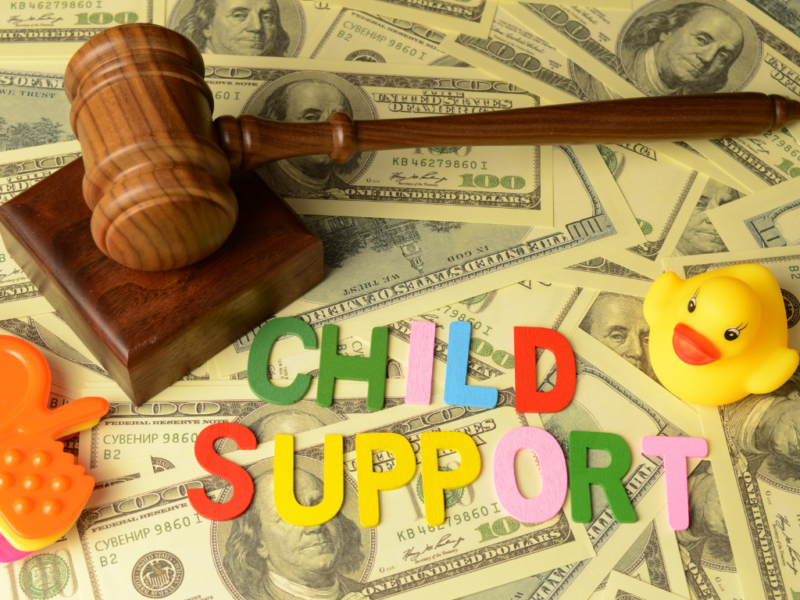
Most people believe that child support terminates when the child turns 18. However, this is not always the case and will ultimately depend on the facts and circumstances.
Navigating the ins and outs of child support requirements in the State of Florida can be confusing. Fortunately, however, you don’t have to go through this process on your own. In this articel we’ll discuss when child support ends in Florida and how the attorneys at Beller Law, P.L., can help you move forward.
An Overview of Child Support Termination in Florida
The end date for child support payments varies from case to case. However, having a general understanding of Florida law surrounding child support can help you determine when your end date might be. Let’s discuss a few important things to note about child support and when it terminates in Florida.
Determining Child Support Amounts
When Does Child Support End in Florida, Generally?
As noted above, the end date for child support payments in any given case will vary depending on the underlying facts and circumstances. However, one thing all cases will have in common is that the end date will be specified in the child support order.
Under Florida Statutes § 61.13, all child support orders entered on or after October 1, 2010, must specify the month, day, and year that the termination of child support will become effective. Further, except in certain circumstances, this order must provide that the child support will terminate on the child’s 18th birthday.
If you aren’t sure when your support payments will terminate but have already obtained a child support order from the court, reviewing the details of your specific order is the first place to check.
Exceptions to the General Rule
Florida law specifies that child support may continue in certain cases after the child reaches the age of 18. Specifically, this might occur when:
- The child is still in high school and is performing in good faith with a reasonable expectation of graduating before they reach the age of 19; or
- The parties agree to continued support beyond 18 (or 19, where applicable).
If you have questions about whether and to what extent you can extend your child support payments beyond 18 or 19, speak with an experienced attorney to discuss your options in more detail.
When Child Support in Florida Can Continue Indefinitely
It is not common for child support to continue indefinitely. That said, there is no law prohibiting perpetual child support.
Typically, indefinite child support will only be granted where good cause exists or where both parents agree to such an arrangement. Again, while not extremely common, indefinite child support is more frequently seen in situations where a child has a disability or certain special needs that would require ongoing support for the care and benefit of the child. Importantly, this will need to be determined by a court before the child turns 18.
Of course, this is not the only situation in which indefinite child support beyond the age of 18 may be awarded. Be sure to consult with a legal professional to learn more about whether indefinite child support may be applicable to your situation.
Modification of Child Support Termination Dates
Even after the entry of the child support order specifying the applicable termination date, the information specified in the order, including the termination date, can be modified in certain situations.
For example, Florida law specifies that the court that initially entered the child support order may modify the order to shorten or extend the termination date if:
- The child gets married;
- The child joins the armed services; or
- There is a substantial change in circumstances.
A child support termination date set forth in a court order may also be modified where the court finds that doing so would be in the best interests of the child.
While many things may be taken into account, the primary consideration for the court is the child’s best interest. In evaluating whether modifying the original child support order is in the best interests of the child, Florida courts will consider factors such as:
- The financial position of both parents;
- The particular financial needs of the child;
- Whether the child has any disabilities that would prevent them from being able to financially support themselves after they turn 18;
- Whether there has been any agreement between the parents to modify the existing child support order; and
- The overall health, education, and general welfare of the child.
Modifying an existing child support order is not always straightforward or easy. Nevertheless, doing so is sometimes what is necessary to best protect yourself, your child, and their interests.
Get In Touch With a Florida-Based Family Law and Child Support Attorney Today
As the name implies, child support payments generally continue until the child becomes an adult and reaches the age of 18. Nevertheless, there are situations where a parent might wish to terminate child support before the child reaches the age of 18 or extend it into adulthood.
No matter the precise situation you are dealing with, the attorneys at Beller Law, P.L. are here to help. From divorce matters to custody and child support disputes and everything in between, we have the background and experience necessary to help you fight for your rights.
Give us a call to discuss your case and see how we can help move forward today.
